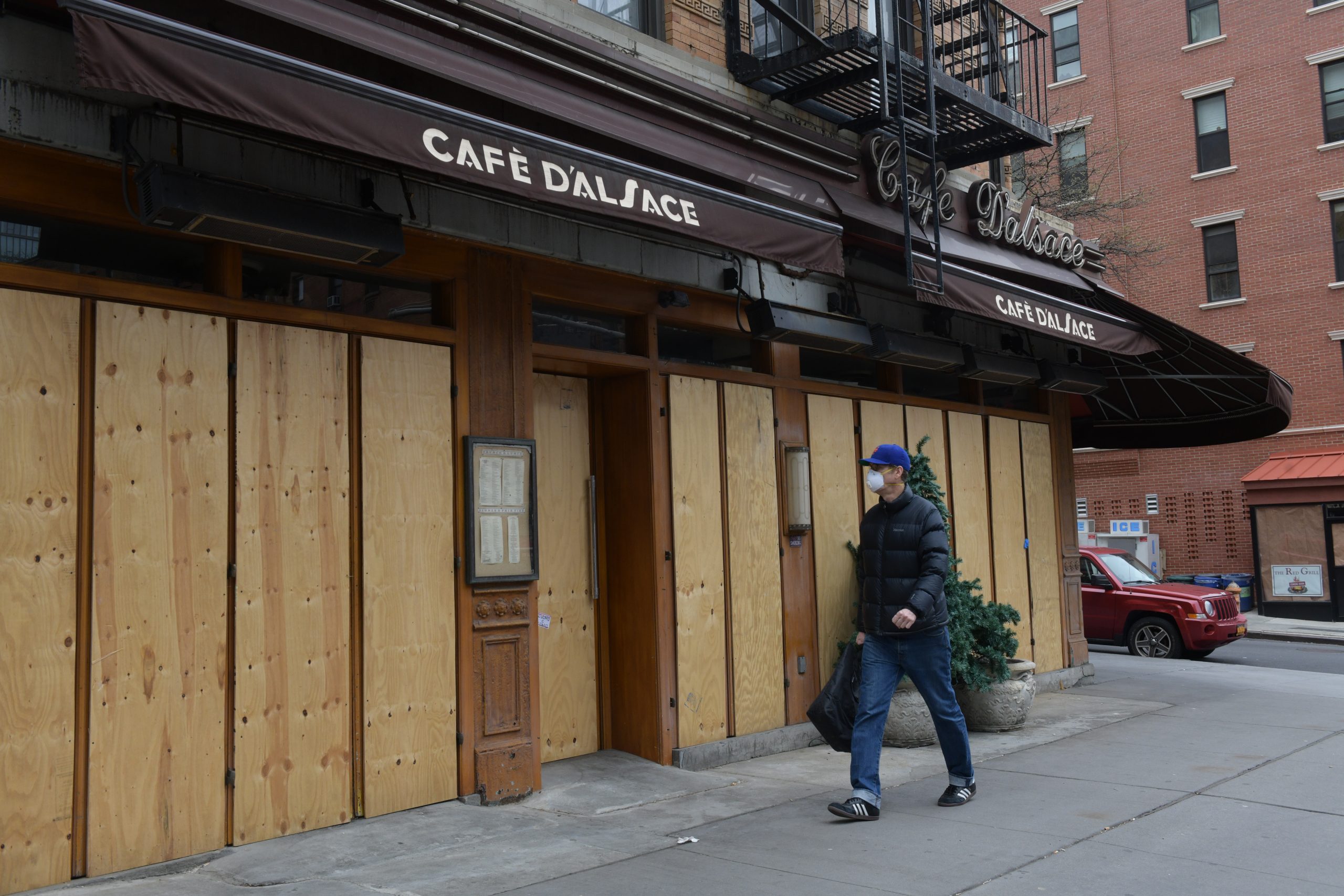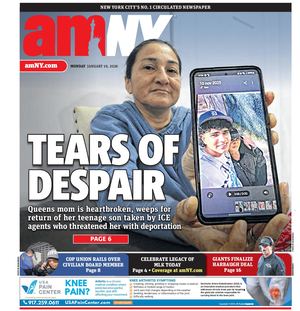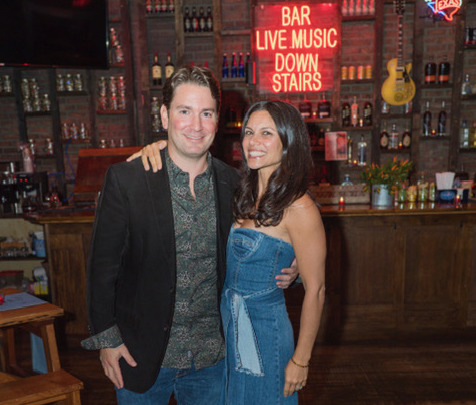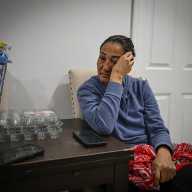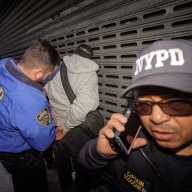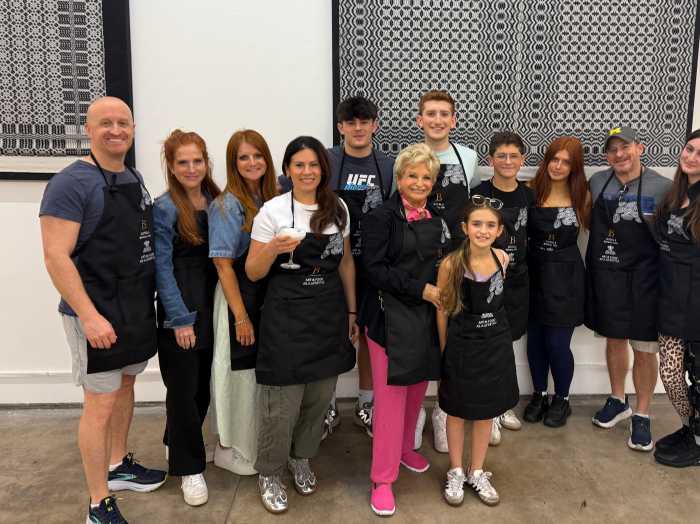The world-renown restaurants were among the greatest features of New York City, catering to the rich, the tourist, and even those of lesser means who wanted to spend a special evening. They were a treat for those tired of cooking at home. But today, they are all closed or operating take-out and deliveries, just to stay alive – but hardly staying above water.
Restaurateur Marc Glosserman is determined to stay in businesses with his three restaurants, Hill Country Chicken and Hill Country Barbecue in Flatiron and a third restaurant in Washington D.C. Only Barbecue at 30 west 26th is open for take-out and delivery. His staff is a skeleton crew of mostly managers who are determined to keep it afloat, all taking lower salaries.
They applied for and received a PPP loan, but they are still unable to rehire the 200 or more people that had to be furloughed during this crisis. There just isn’t enough work for restaurant employees – no tables or bar services are allowed.
Their business is down about 80 percent, his management team agreeing to keep the one restaurant open on reduced salaries. They are working in different roles – a chef might be receiving food from vendors, cleaning, and the general manager even making afternoon deliveries in “a new normal, new operating model,” Glosserman said.
“Our primary goal is to keep our team employed and together because it is important for them, and yes, there is a trade-off,” Glosserman said. “There is a public health risk versus financial insecurity and not having a paycheck. The decision was what is best for them. If we are able to generate enough business to cover payroll at a minimum and pay vendors, we would do that as our primary driver.”
Glosserman says he and his partner in life, wife Kristen – the “Queen of the Hill” fully intend to get through this thing and reopen all the restaurants.
“When that happens we want to keep the team together through this time, making us a stronger team, bound together and bonded through this crisis – a silver lining of getting through this together,” Glosserman said.
Glosserman said the restaurant has been deemed essential service, like a pharmacy, grocery, to feed the community with “a higher sense of purpose.” This is why his restaurant has already provided about 1,000 meals to health care workers and first responders on the front line of the COVID-19 crisis.
But also “a lot of people don’t want to cook and we are also providing groceries to those who don’t have Instacart. Their barbecue is “comfort food, well crafted for this crisis, pandemic, with people seeking comfort,” with mac and cheese or a brisket sandwich – “wholesome and comforting.”
He believes in his restaurant and staff, and is confident that he can make the adjustments to the “new normal.” But he is concerned about what the new normal will look like. How many people in a dining area, can the bar still be open and active are big questions. Will rents plunge because so many businesses don’t survive?
He also worries about his neighbors – empty storefronts will not become a long-lasting effect of coronavirus.
“We are in the same boat as any restaurant in the country – we are closed with very uncertain future so we are coming up with a vision of what the future holds all trying to figure this out and grapple with realities,” Glosserman said. “It will likely be a diminished business for a sustained period of time so it doesn’t matter when we reopen, guests are not likely to come out for a number of reasons ranging from social distancing, mandated a certain number of seats, guests feeling uneasy, people suffering the financial shock of being unemployed or their 401K was hit and now have less discretionary spending. We might not be able to open bars the same way, hosting events the same way. What do we do to survive to accommodate, do we amp up offerings, not a lot of restaurants can do that and make up tremendous lost revenue.”
He says the tourist industry in New York was the biggest in the world, but now, the city is the epicenter of the pandemic “and the city is reliant on tourism.”
He worries that many restaurants will not survive.
“Until there is a vaccine, it is hard to see how we get back to normal. I think there will be people forced out of business, people who will throw in towel and say it is not worth it. Some will stick it out. We will ride it out no matter what it takes, those are able to make to the other side, there will be recovery, just question of when and how we try to imagine what opportunities are out there.”
In the meantime, he works with his staff to continue to feed health care workers and make deliveries and take out for a hungry community. His wife spends much of her time as a “full-time mom,” taking care of their four children who are doing their virtual classes.
Thankfully, his family is healthy, but he has friends who he lost COVID-19 including a noted chef, the father of one of his daughters third-grade classmates.
“This will take a lot longer to recover than 9-11 when that terrible tragedy occurred, but New Yorkers are resilient and tough, and I think there will be pent up demand – people want to be out in public, they want to see Broadway shows. All those things we do socially with other people, but it will be impacted. Living in the city, enjoying amenities – it will be different,” Glosserman lamented.
